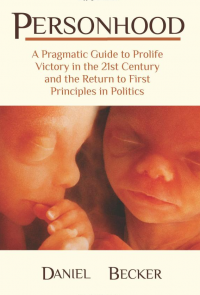New bills in Alabama would grant personhood at the ‘moment of fertilization’
Alabama lawmakers last week introduced three heavily-sponsored bills that in concert would change how a person is defined in the state and potentially make abortion in all circumstances illegal.
Senate Bill 301, introduced by Sen. Phil Williams (R-Cherokee, Etowah), is a proposal to amend the Alabama Code of 1975 to change the definition of the term “person” to mean: “any human being from the moment of fertilization or the functional equivalent thereof.”
Williams’ bill — read for the first time last Tuesday — has 18 co-sponsors and has been referred to the Senate committee on Health.
Rep. John Merrill (R-Tuscaloosa) filed an identical personhood bill in the House on Thursday, House Bill 405. But taking a step further from just amending the state’s legal code, Merrill also filed House Bill 409, which is a ballot proposal to amend the Constitution of Alabama of 1901, so that every time the word “person” is used in that document it would include “‘all humans from the moment of fertilization.” If HB 409 goes forward, Alabamans would have the opportunity to vote on this amendment either in special election at the end of the year or in 2012.
These bills, which have been referred to the House Health committee, both have 31 co-sponsors, which, according to the attorney Ben DuPré of the Foundation for Moral Law, is “astounding” and a good indication that the laws will pass. DuPré and the national organization Personhood USA helped draft the earlier versions of the legislation, though several anti-aboriton rights groups, such as Alabama Citizens for Life, have backed the bills.
“We must protect all Alabama children,” said Sen. Williams in a Personhood USA statement. “At the same time we have to send a message that Alabamians value the sanctity of life. Every heartbeat is as important as the next.”
In the same statement, DuPré is quoted as saying: “America used to define the meaning of ‘person’ along racial lines; now we draw the line at the womb. Personhood legislation finally gives equal protection of the laws to the unborn as well as the born, and from the first moment of human life.”
These proposed laws do not address abortion or the legal implications therein, but DuPré told The American Independent that if the personhood bills pass, then Alabama lawmakers will have to address “whatever flows from that.”
“I’m encouraged the legislators are doing this,” he said. “Alabama is a pro-life state, but the laws have not caught up to that.”
DuPré said that while the code-amending bill would likely be easier to pass than the constitution-amending law, the latter would make the strongest legal statement and give Alabama voters the chance to “protect all life.” He also noted that Alabama’s constitution defines corporations as persons, but not unborn babies.
Asked how the this type of state constitutional amendment would stand up against U.S. law, which grants the legal right to an abortion, DuPré said that within the Roe v. Wade Supreme Court decision, there is a particular passage that opens up the case for personhood:
The appellee and certain amici argue that the fetus is a person within the language and meaning of the Fourteenth Amendment. . . . If this suggestion of personhood is established, the appellant’s case, of course, collapses, for the fetus’ right to life would then be guaranteed specifically by the Amendment. Roe v. Wade, 410 U.S. 113, 156-57 (1973).“Roe v. Wade leaves a door open and the Personhood amendment walks right through that,” DuPré said.
Personhood bills and amendments are seeing action throughout the country; bills recently passed the North Dakota House and an Iowa House subcommittee, and a personhood constitutional amendment has been proposed in Mississippi. Other personhood legislation has been introduced in Georgia, Montana, Texas and Oklahoma, according to Personhood USA. According to the group’s website, Personhood USA has personhood petitions active in 50 states, with a total of 921,831 signatures, to date.
Colorado was the first state to introduce a bill that would redefine “person” in the state constitution, but the measure was defeated in the November 2008 election. The American Civil Liberties Union has strongly opposed personhood propositions since they started gaining traction, asserting in a 2010 statement that this type of law would not only ban abortions but also “block stem cell research and curtail access to in vitro fertilization and common forms of contraception, among other reproductive health services,” as well as affect a host of other laws that deal with everything from property rights to inheritance rights.
A personhood amendment could not block stem cell research or treatments. Personhood amendments and legislation clearly state that every human being is a person, which only makes it illegal to kill human beings. Therefore, the only stem cell research affected by a personhood amendment would be embryonic stem cell research, which has largely proven to be unsuccessful. Adult stem cell research (which has proven widely successful and is currently being used to successfully treat over 70 diseases and injuries). The most successful stem cell research – which does not require the killing of a human being – will still be legal. A personhood amendment could not make ANY contraception illegal. Contraception does not kill a human being, it prevents conception. (contra+ception). Only pills that are proven to cause chemical abortions would be banned by a personhood amendment. Lastly, a personhood amendment would make in vitro fertilization SAFER. In vitro would absolutely still be legal; the only change is that it would be illegal to purposely kill children created via in vitro – a practice to which many fertility clinics already adhere, and nearly every mom undergoing in vitro would agree with.http://www.americanindependent.com/177085/new-bills-in-alabama-would-gra…
Personhood USA is leading the charge of the Personhood Movement, Please help us push forward with your donation today !




